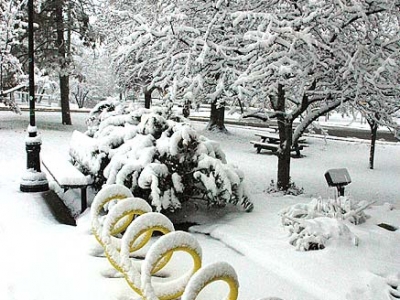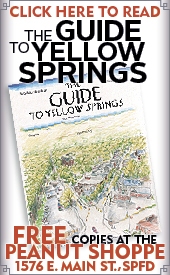An ‘Uncle Vanya’ that kids can get
- Published: December 2, 2010
Uncle Vanya, a play by the Russian writer Anton Chekhov, is a heavy classic about the unlived life told through the regretful musings of a gentrified family. The play contains no children, dragons or furry animals, and yet in 1979 a writer and teacher named Phillip Lopate decided to have his fifth- and sixth-grade students at PS 75 in New York City stage a production of Uncle Vanya on Broadway. Thirty years later, one of those students, Sasha Waters Freyer, has made a film, Chekhov for Children, about the experience and will introduce her work at a screening at the Little Art Theatre this Saturday, Dec. 4, at 4 p.m.
The screening was the idea of local resident, Angela Brintlinger, who is a professor of Russian literature at Ohio State University and who is one of many around the world honoring the 150th anniversary of Chekhov’s birth. She sees a clear resonance between the classics, such as works by Chekhov, and the youth who are developing their sense of the world and its possibilities, she said. For example, she recently took her daughter, Olivia, incidentally also a fifth grader, to see another Chekhov play, The Three Sisters. Olivia immediately declared the play was “boring!” — which Brintlinger explained was a very astute summary of the issue Chekhov was writing about.
“Yes, that’s exactly the point,” Brintlinger told her daughter. The gentry who could afford a life of leisure were “unfulfilled because without work, they had lost their place in society.”
Though often written in a different period, the classics are classified as such partly because they speak to human nature and will always have meaning in contemporary society. Chekhov, for instance, was the original ecologist, Brintlinger said, referring to the preservationist themes in Uncle Vanya, written in 1897. One of the characters in the play talks about “sounding the alarm” about the developers who are cutting down too many trees, she said.
The themes in Chekhov’s work, including questions about individual purpose, expectations and the importance of work apply to children, who at an early age begin thinking about their place in society and what it’s like to work and to love, Brintlinger said.
Waters Freyer expressed similar appreciation for Chekhov’s universal themes, and likened his wry, self-deprecating humor to the Peanuts comics she was reading at the time she performed the play. Also very familiar to a pre-teen is “that odd combination of excitement for an unknown future, coupled with ennui…the feeling of waiting-for-life-to-get-started already!” she said this week.
Brintlinger too experienced Chekhov at the ripe age of 10, when her school put on Ivanov. And though she recalls mostly long speeches and drinking lots of tea, she believes the experience may have influenced her lifelong devotion to Russian studies.
Lopate’s project was unheard of at the time, and as he said in a radio interview earlier this year on WNYC, “The students had no idea who Chekhov was — all they wanted to do was vampire and gangster films.” But looking back, Waters Freyer recalls that the experience “was more about pulling off something really, really hard. The ability to do it, had, I believe, tremendous reverberations for everyone involved. It was an object lesson in the immense satisfaction derived from accomplishing something truly difficult.”
Both Brintlinger and Waters Freyer said that the formative challenges from their own early academic experience made them think about what they want their own children to be learning and doing at school today. From Brintlinger’s perspective, Yellow Springs youth are raised with much opportunity to see and study theater and film already, and they are impressionable enough be be influenced by classic works of literature.
“All you really need is a good story to get them thinking,” she said.
Waters Freyer’s film tells a good story, one that includes kids grappling with many of the same themes that Yellow Springs youth are experiencing. She hopes that local youth will be interested enough to come and see the similarities for themselves, which was part of the filmmaker’s purpose.
“I wanted to celebrate the value of public arts education, and the importance of teachers, mentors and parents in actively encouraging children to flourish via creative means,” she said.
The Yellow Springs News encourages respectful discussion of this article.
You must login to post a comment.
Don't have a login? Register for a free YSNews.com account.
Parkinsons.jpg)














No comments yet for this article.